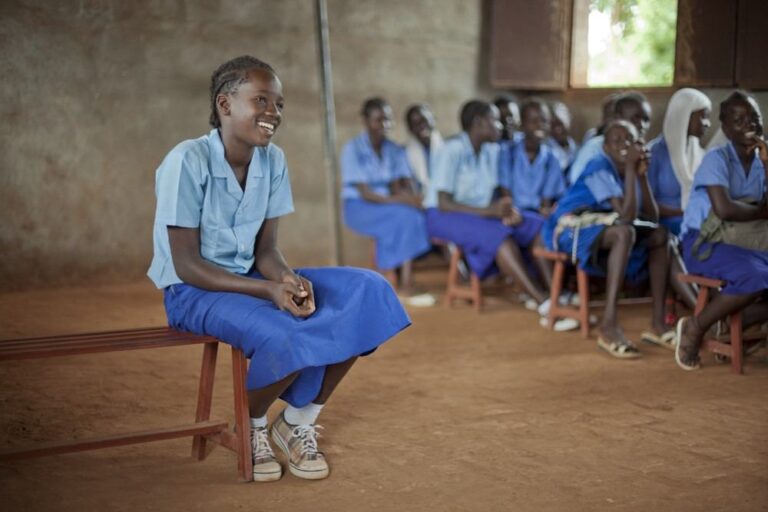For many African girls, the first period doesn’t come with a celebration or even an honest explanation.
Instead, it shows up with confusion, shame, and a whole bunch of lies passed down by people who also didn’t know better. These lies aren’t just harmless, they can hurt confidence, health, and even keep girls out of school.
It’s 2025. It’s time we stop whispering and start telling the truth. Here are 7 common period myths girls still hear, and the facts we all need to replace them with.
-
You’re not supposed to cook when you’re on your period
In some communities, girls are told not to cook while menstruating because their ‘dirty’ energy will ruin the food or bring bad luck. That’s not just untrue, it’s dehumanising.
The truth: Menstruation is a natural body process. It does not make a girl “unclean” or unworthy. If anything, a girl on her period needs rest and kindness, not exclusion from daily life.
-
Don’t climb trees while on your period — you’ll ‘spoil’ them
Believe it or not, in some parts of Africa, there’s an old belief that a girl or woman on her period shouldn’t climb a tree because her presence might ‘curse’ it , making the tree dry up, stop producing fruit, or even die.
This myth is rooted in the idea that menstruation is dirty or harmful, which is simply not true. Periods don’t affect trees. What they do affect is girls’ confidence when such myths hold them back from everyday activities.
-
You can’t get pregnant during your period
This myth is very common, and very risky. Many girls think they’re safe from pregnancy just because they’re bleeding.
The truth: While it’s less likely to get pregnant during menstruation, it’s not impossible. Sperm can live in the body for up to 5 days, and some girls ovulate early. If you’re sexually active and not trying to conceive, use protection, always.
-
Only grown-up girls get periods
This one can make younger girls feel like something is wrong when they start menstruating early.
The truth: Every body is different. Some girls get their first period at 9, others at 16. It doesn’t mean someone is more ‘mature’ or ‘ready for marriage’, another harmful myth, btw). It’s just biology doing its thing.
-
If you use a tampon, you’ll lose your virginity
This myth is so common, it stops girls from accessing the products that work best for their bodies.
The truth: Virginity is a social idea, not a medical condition. Using a tampon doesn’t affect a girl’s sexual status. Some may find tampons uncomfortable at first, but with the right information and product size, they’re totally safe.
-
Menstrual blood is dirty and shameful
This one hits hard. It’s the reason girls hide pads in black plastic bags and walk around in fear of a leak.
The truth: Menstrual blood is not ‘dirty’, it’s just the body shedding what it doesn’t need. Periods are a sign of health and fertility. They shouldn’t make anyone feel disgusting or embarrassed.
-
You shouldn’t talk about your period in public
Whether it’s school, church, or even family, girls are often told to keep quiet about their periods like it’s a dark secret.
The truth: Menstruation is normal. Talking about it is how we get support, raise awareness, and demand better access to pads and healthcare. Silence helps shame grow. Conversation breaks it down.
8. If you get pregnant, you’ll never feel period cramps again”
Some girls are told that once you’ve had a baby, period cramps magically disappear , or that getting pregnant is a cure for painful periods. Big myth!
While some people do notice changes in their cycle after childbirth (like lighter or less painful periods), others still struggle with cramps. Pregnancy is not a medical solution for menstrual pain , and definitely not something to try just to skip cramps! or periods.
Let’s Rewrite the Script
If we want a #PeriodFriendlyWorld, it starts with the truth. These lies still continue to keep generations of African girls in the dark, afraid to ask questions, afraid to speak up, afraid to exist fully while bleeding.
But every myth we bust is one more step toward dignity, confidence, and equal opportunity for girls everywhere.




